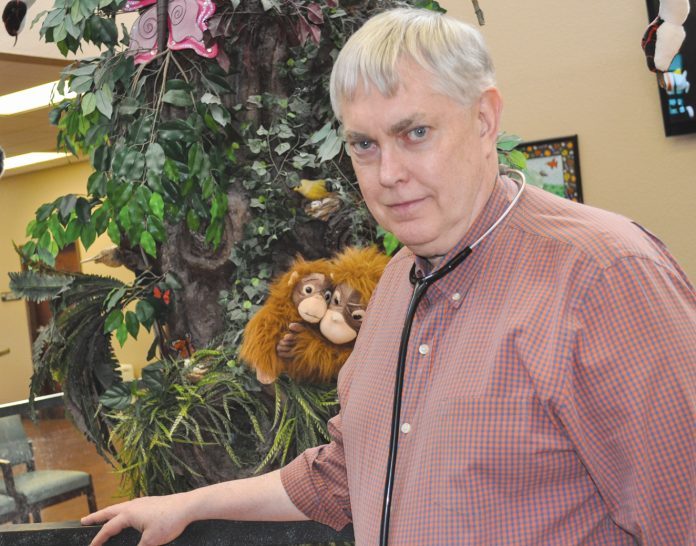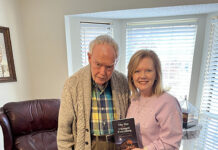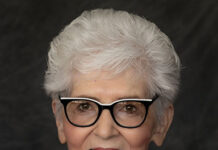
Seniors needed in vaccine debate
story and photos by Bobby Anderson, Staff Writer
Whooping cough, polio, measles and rubella.
Anyone over the age of 50 remembers hearing horror stories about the diseases that plagued previous generations.
For the much of the current generation the above are simply footnotes in history with no real meaning.
But that may be changing.
From January 1 to March 25, 2017, 28 people from 10 states (California, Colorado, Florida, Michigan, Nebraska, New Jersey, New York, Pennsylvania, Utah, and Washington) were reported to have measles.
Those numbers are alarming for Norman Pediatrician Dr. Thomas Kuhls, so alarming that for the first time in his life he’s entered politics.
“I’ve never done anything political in my life. I don’t think I even ran for student council in middle school,” Kuhls laughed.
Then two things happened. Kuhls read that an immunization bill by Sen. Ervin Yen would not be heard in the 2016 session.
“Senator Yen’s bill would strengthen immunizations because rates are dropping,” Kuhls said. “More importantly, at the end of the legislative year when the anti-vaccine bill was passed by an overwhelming majority and went to the Governor.” Thank God Gov. Fallin vetoed it but what scared me was when the Republicans tried to override their own governor and came just 13 votes short.
“It was clear the majority of those legislators … even with my ignorance I knew there weren’t that many people that didn’t have their kids vaccinated. It had to do more with misinformation and misunderstanding and not really truly understanding vaccines.”
That’s why Kuhls is supporting the non-profit political action group Vaccinate Oklahoma.
Kuhls taught vaccines at the University of Oklahoma for years. His background is in immunology and pediatric infectious diseases.
Kuhls still has his smallpox scar.
“In my generation and in my parents’ they all knew the importance of vaccines because many of those era have seen polio,” Kuhls said. “Back in my era vaccines were always important.”
WHAT’S AT STAKE
“I think people don’t realize what’s at stake,” Kuhls said. “Our personal exemption rate is increasing yearly in this state. Other states when their rates go up have had outbreaks of diseases like in California.”
“When the population isn’t immunized it sets us up for a disaster, an outbreak.”
Before the middle of the last century, diseases like whooping cough, polio, measles, Haemophilus influenzae, and rubella struck hundreds of thousands of infants, children and adults in the U.S.. Thousands died every year from them. As vaccines were developed and became widely used, rates of these diseases declined until today most of them are nearly gone from our country.
Statistics from the CDC paint an interesting picture.
*Nearly everyone in the U.S. got measles before there was a vaccine, and hundreds died from it each year. Today, most doctors have never seen a case of measles.
*More than 15,000 Americans died from diphtheria in 1921, before there was a vaccine. Only two cases of diphtheria have been reported to CDC between 2004 and 2014.
*An epidemic of rubella (German measles) in 1964-65 infected 12½ million Americans, killed 2,000 babies, and caused 11,000 miscarriages. Since 2012, 15 cases of rubella were reported to CDC.
Kuhls says the United States has very low rates of vaccine-preventable diseases, but this isn’t true everywhere in the world.
Only one disease — smallpox — has been totally erased from the planet. Polio is close to being eliminated, but still exists in several countries.
More than 350,000 cases of measles were reported from around the world in 2011, with outbreaks in the Pacific, Asia, Africa, and Europe.
In that same year, 90% of measles cases in the U.S. were associated with cases imported from another country. Only the fact that most Americans are vaccinated against measles prevented these clusters of cases from becoming epidemics.
Kuhls said one of the major drivers of non-compliance is public schools making it easier for parents to sign exemption forms rather than instructing parents to have their children vaccinated.
“I think anybody my age understands the importance of vaccines and have watched diseases go away,” Kuhls said. “Your readers need to tell their grandkids these diseases are real and they’ve lived through them and they are the vaccines that made them go away.”
“It’s the grandparents that have seen that and have been through that.”













